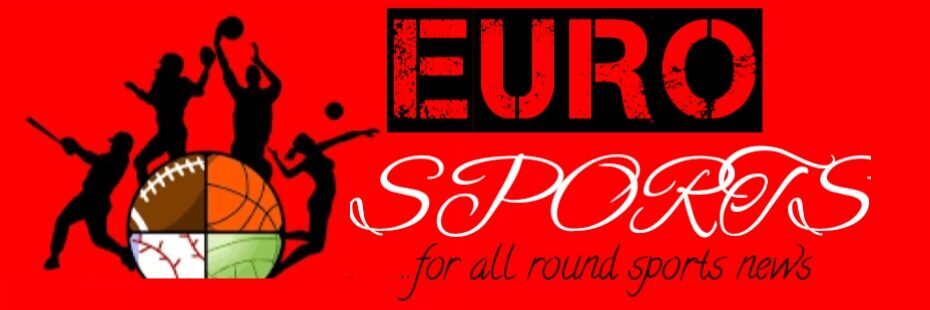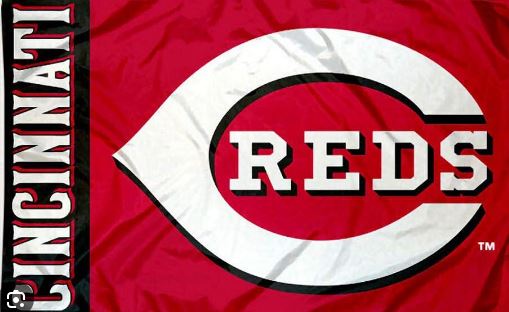With the 2024 Draft still two months away, there’s limited solid information on who will be selected in the first round. The situation will become clearer as college and high school players conclude their seasons in the coming weeks, and teams conduct interviews and obtain medical information at the Draft Combine.
This year’s talent pool isn’t as deep as usual, especially among college pitchers and high school position players, adding to the uncertainty.
According to MLB Pipeline, Georgia outfielder/third baseman Charlie Condon and Oregon State second baseman Travis Bazzana are considered the top prospects for most teams. Following them is a second tier of seven players who could be picked in almost any order: Florida first baseman/left-hander Jac Caglianone, Wake Forest first baseman Nick Kurtz, Texas A&M outfielder Braden Montgomery, Arkansas left-hander Hagen Smith, Wake Forest right-hander Chase Burns, West Virginia shortstop J.J. Wetherholt, and Jackson Prep (Flowood, Miss.) shortstop/outfielder Konnor Griffin.
Currently, I predict these nine players will be selected in the first nine picks, though the Draft rarely follows such a predictable pattern. Harvard-Westlake HS (Studio City, Calif.) shortstop Bryce Rainer and East Carolina right-hander Trey Yesavage might also be in contention. Beyond these, there’s little agreement on how the rest of the first round will unfold.
Detailed reports, scouting grades, and videos for all these players are available in MLB Pipeline’s Draft Top 150 list.
1. Guardians: Travis Bazzana, 2B, Oregon State (No. 2)
The Guardians haven’t made a decision yet and have plenty of time to do so, though other clubs believe they favor Bazzana over Condon. Like most of the hitters at the top of the Draft, Bazzana is having a monster year (.424/.589/.972, 26 homers, ranking second in NCAA Division I in on-base percentage, slugging and OPS). He makes more contact and offers slightly more defensive value than Condon. It’s a given at this time of year that there will be rumors that the team with the No. 1 pick will look for a significant discount so it can trickle down the savings to later selections, and that buzz is out there about Cleveland.
2. Reds: Charlie Condon, OF/3B, Georgia (No. 1)
This choice may be as simple as taking whoever remains between Condon and Bazzana. The consensus No. 1 prospect, Condon has set a BBCOR-era record with 34 homers and offers the best combination of power, contact and plate discipline available. He’s slashing .454/.567/1.082 and leads D-I in hitting, slugging, OPS, homers, extra-base hits (53) and total bases (210).
3. Rockies: Jac Caglianone, 1B/LHP, Florida (No. 3)
Caglianone is batting .418/.529/.862 with 28 homers (second to Condon) and an absurd 7 percent strikeout rate despite a 39 percent chase rate that worries some clubs. His raw pop rivals Condon’s and he’s also intriguing as a power-armed lefty pitcher, though he’ll be drafted as a slugger. If Condon and Caglianone go 1-2, the Rockies might opt for pitching with Burns or Smith.
4. Athletics: Nick Kurtz, 1B, Wake Forest (No. 4)
After slumping to start the season and battling a shoulder injury, Kurtz has regained his mojo, homering 14 times in nine games and six times in seven at-bats at one point. He’s batting .322/.538/.805 with 20 homers, sports well-above-average raw power and makes better swing decisions than Condon and Caglianone. Any of the top six college hitters could be in play here.
5. White Sox: Braden Montgomery, OF, Texas A&M (No. 5)
This selection is wide open, as each of the top nine prospects has been connected with the White Sox if they get to No. 5. Montgomery is a high-upside right fielder who’s hitting .333/.476/.778 with 24 homers.
6. Royals: Konnor Griffin, SS/OF, Jackson Prep, Flowood, Miss. (No. 9)
Griffin has the best all-around tools and the highest ceiling in the entire Draft, and he projects as a plus defender at shortstop or a Gold Glover in center field. There are some mixed opinions about his hitting ability, though his proponents think concerns are overblown. If the White Sox take Griffin, the Royals could turn to Smith or Burns.
7. Cardinals: Hagen Smith, LHP, Arkansas (No. 6)
Getting the best pitcher in the Draft would be quite a coup at No. 7. Smith has a wipeout fastball/slider combination and leads D-I in ERA (1.65), average against (.138) and strikeout rate (17.2 per nine innings). The Cardinals also will sift through the remaining college hitters and Burns, and they’d probably opt for California prep shortstop Bryce Rainer over Griffin.
8. Angels: Chase Burns, RHP, Wake Forest (No. 7)
Burns paces D-I in strikeouts (156 in 82 innings) thanks to an overwhelming fastball/slider combo and has a nifty changeup as well, so some teams prefer him to Smith. Either would fit the Angels’ recent philosophy of taking players they can rush to the big leagues. So would Yesavage and Florida State outfielder James Tibbs, and there’s chatter that the Angels could pursue a discount deal with one of them.
9. Pirates: J.J. Wetherholt, SS/2B, West Virginia (No. 8)
MLB Pipeline’s top-rated prospect entering the season, Wetherholt has been waylaid by a recurring hamstring injury that has made it impossible to evaluate whether he can play shortstop at the next level. He’s heating up at the plate (.384/.525/.686) and rivals Bazzana as the best pure hitter in the Draft, albeit with less power. Smith and Burns would be attractive to the Pirates, Griffin and Rainer could be as well and there’s also some discount Tibbs talk as well.
10. Nationals: Bryce Rainer, SS, Harvard-Westlake HS, Studio City, Calif. (No. 10)
The next few teams all would love to see one of the consensus top nine players make it to them, and one or two might. Barring that, Rainer’s all-around tools and improved athleticism make him the next-best option. His floor is probably the Red Sox at No. 12.
Yesavage has clearly established himself as the best college pitcher behind Smith and Burns, improving his strike-throwing and mixing four solid or better offerings while fanning 132 (fourth in D-I) in 80 1/3 innings. He likely won’t get past the Giants at No. 13.
12. Red Sox: Seaver King, 3B/OF, Wake Forest (No. 13)
King’s bat-to-ball skills, athleticism and versatility are attractive to teams in the 12-17 range.
13. Giants: Cam Caminiti, LHP, Saguaro HS, Scottsdale, Ariz. (No. 17)
The best prep left-hander in the Draft, Caminiti spun a complete-game two-hitter with 11 strikeouts to win the Arizona 4-A state championship game on Monday. He’s a dark horse to go as high as No. 9 to the Pirates and might not make it further than the Mariners at No. 15.
14. Cubs: James Tibbs, OF, Florida State (No. 22)
Tibbs profiles as a bat-only guy who projects as a left fielder, but it’s a really nice bat (.387/.494/.848, 23 homers) and he keeps climbing Draft boards. This is pretty close to his floor.
15. Mariners: Theo Gillen, SS/2B, Westlake HS, Austin, Texas (No. 26)
Some clubs believe Gillen is the best hitter in the prep class and he also comes with plus speed, though a below-average arm could push him to center field. He’d be the fourth straight high school position-player first-rounder for the Mariners, who also are kicking the tires on the top prep arms as well.
16. Marlins: Cam Smith, 3B, Florida State (No. 21)
Most of the next few teams are zeroing in on college bats, the strength of this Draft. The first of four sophomore-eligibles on this list (ahead of Dakota Jordan, Jurrangelo Cijntje and Malcolm Moore), Smith starred in the Cape Cod League and is making much more contact than he did as a freshman.
17. Brewers: Vance Honeycutt, OF, North Carolina (No. 23)
Honeycutt has the best tools in the college class but also alarming strikeout rates and in-zone swing-and-miss percentages, so he both enthralls and frightens clubs at the same time. Some teams think he won’t last this long, while others believe he could drop into the late 20s.
18. Rays: Kaelen Culpepper, SS, Kansas State (No. 31)
A line-drive hitter who has the makings of a Gold Glove third baseman, Culpepper would be the first-ever first-round pick from Kansas State.
19. Mets: Dakota Jordan, OF, Mississippi State (No. 24)
Jordan’s offensive profile and athleticism are similar to Honeycutt’s, though he comes with less defensive prowess. He may have the quickest bat in this Draft.
20. Blue Jays: Tommy White, 3B, Louisiana State (No. 16)
White could wind up at first base but he’d still profile as a regular there after producing three straight 20-homer seasons with huge power that overshadows his hitting ability.
21. Twins: Billy Amick, 3B, Tennessee (No. 15)
The No. 1-ranked Volunteers have six players who could get popped in the top two rounds, with Amick and second baseman Christian Moore their most likely first-rounders. Though slowed by a midseason appendectomy, he has shown the ability to hit for average and power while improving his chances of sticking at the hot corner.
22. Orioles: Brody Brecht, RHP, Iowa (No. 28)
Brecht has a fastball/slider combination reminiscent of the one sported by 2023 No. 1 overall pick Paul Skenes, though he lacks Skenes’ polish and complementary pitches. His stuff and control fluctuated early in the year, but he’s surging up boards after posting a 45/11 K/BB ratio over 29 2/3 innings in his last four starts.
23. Dodgers: Kash Mayfield, LHP, Elk City (Okla.) HS (No. 27)
Some clubs rank Mayfield ahead of Caminiti because he spins the ball better and has a more fluid delivery. He gets mentioned as high as the 13-15 range.
24. Braves: Carson Benge, OF, Oklahoma State (No. 20)
Few players in this Draft can beat Benge’s combination of bat-to-ball skills and exit velocities, so there should be more power to come once he learns to lift more balls in the air. He’s also an underrated athlete who can run his fastball up to 96 mph on the mound.
25. Padres: Kellon Lindsey, SS, Hardee HS, Wauchula, Fla. (No. 30)
One of the fastest and most athletic players available, Lindsey has been one of the few pleasant surprises in a down year for Florida high schoolers.
26. Yankees: Jurrangelo Cijntje, RHP/LHP, Mississippi State (No. 41)
Cijntje may be a curiosity as a switch-pitcher, but he’s a legitimate prospect as a right-hander who draws Marcus Stroman comparisons.
27. Phillies: William Schmidt, RHP, Catholic HS, Baton Rouge, La. (No. 12)
Because teams are wary of the risk involved with prep pitchers, they tend to get drafted lower than they’re rated and paid over-slot bonuses. That figures to be the case with Schmidt, our top-rated high school arm on the basis of his best-in-class hammer curveball and a fastball that touches 99 mph.
28. Astros: Walker Janek, C, Sam Houston (No. 25)
More and more clubs are coming around to the idea that the best catcher in the Draft is Janek, who’s batting .376/.486/.733 with 17 homers and features plus arm strength and solid potential as a receiver.
29. Diamondbacks: Slade Caldwell, OF, Valley View HS, Jonesboro, Ark. (No. 19)
The D-backs hit big with a smallish prep outfielder in the first round five years ago — Corbin Carroll — and could try that route again with Caldwell, an advanced hitter with well-above-average speed and nonstop energy.
30. Rangers: Malcolm Moore, C, Stanford (No. 32)
Teams are looking past Moore’s .253/.408/.524 line because his underlying data is much more impressive and he’s a lefty-hitting catcher with power.

